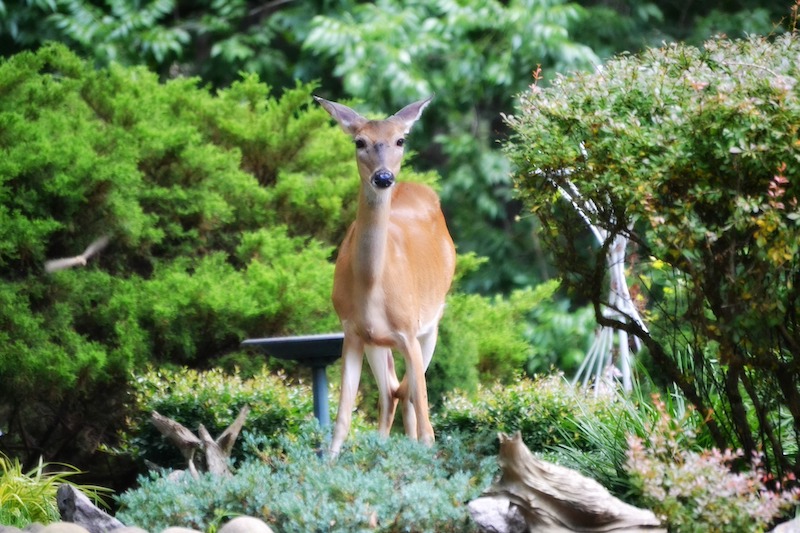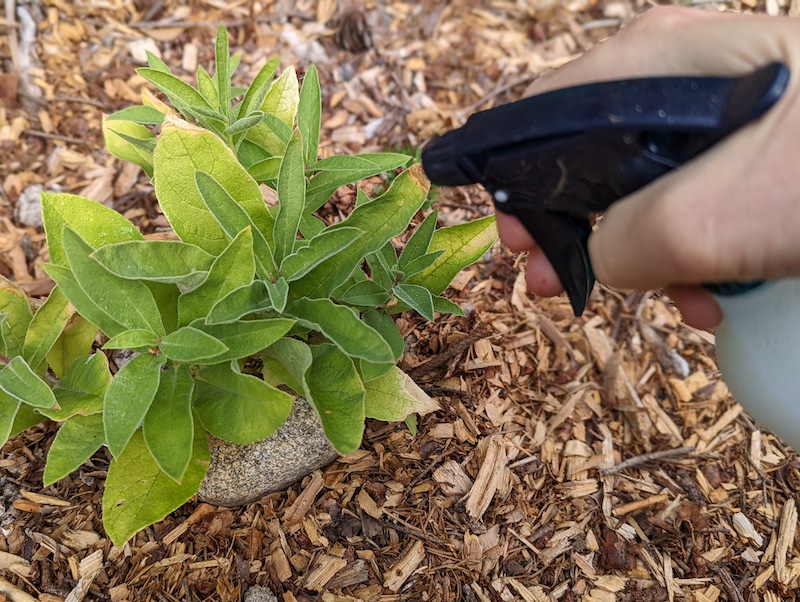Annual and perennial lobelias are considered deer and pest resistant. Slugs and snails are known to eat lobelia, but most other animals will not ingest the plants during any season. Lobelia has a strong, tobacco-like scent that deters pests. Lobelia is toxic for animals to ingest and is mostly left alone because of it. Deer and other pests will choose many other flowering and foliage plants to eat over lobelia.

According to Rutgers University, this plant is Seldom Severely Damaged on their rating scale from Rarely Damaged to Frequently Severely Damaged as seen in the table below.
| Rarely Damaged |
| Seldom Severely Damaged |
| Occasionally Severely Damaged |
| Frequently Severely Damaged |
Keeping Deer Away From Lobelia
Deer do not typically try to eat or trample lobelia plants and largely leave them untouched. In the event that deer are damaging your plants, several deer repellents are available to protect your garden. Deer repellent spray can be applied to foliage and flowers to keep deer from harming your plants. These products would need to be applied weekly and after rainfall to "teach" the deer to stay away. Physical barriers such as fences or stakes can also be used to keep deer out of your garden.

Will Lobelia Come Back After Deer Eat Them?
In the rare event that deer or other pests damage your lobelia, the plant will likely grow back and recover. You can trim back any plants that have been over-grazed or misshapen by a deer or other pest. Make sure trimmed plants are watered well and fertilized when needed. Lobelia plants will recover and push out new growth with fresh new flower buds.
Sources: Rutgers New Jersey Agricultural Experiment Station ‘Landscape Plants Rated by Deer Resistance’ 2018
 |
Author Katie Endicott - Published 9-15-2022 |


